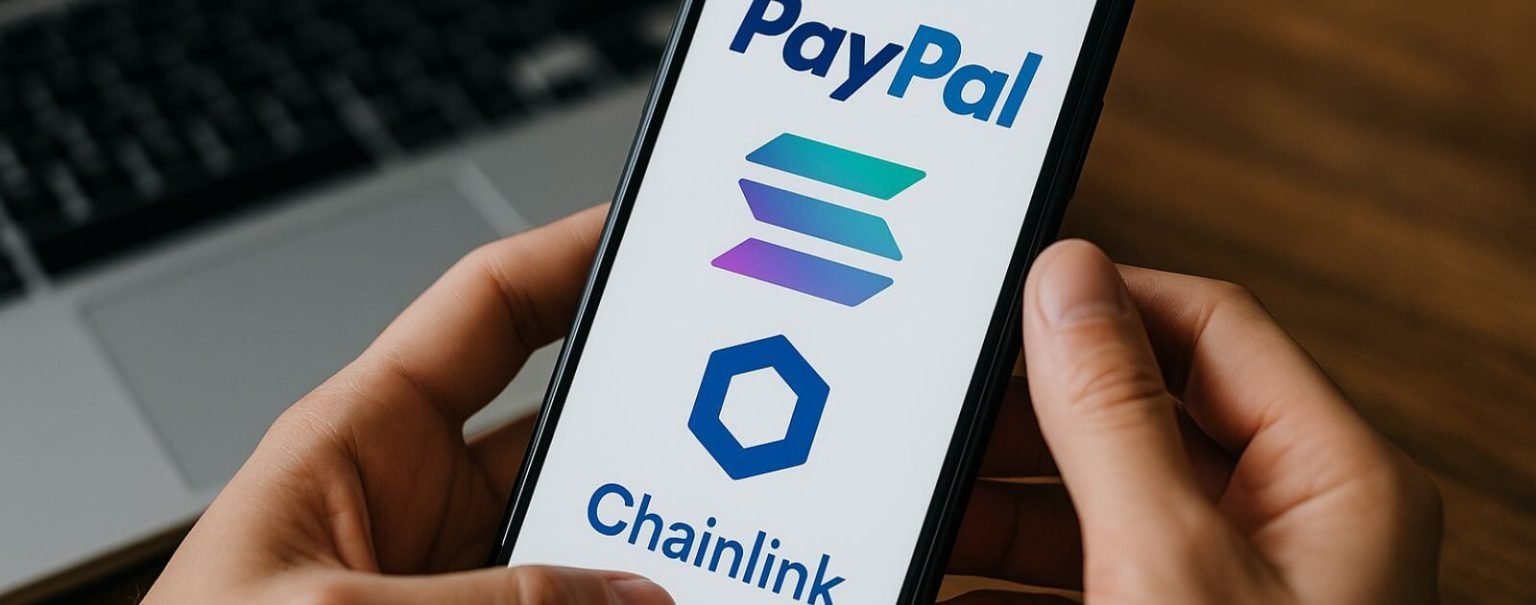PayPal Expands Crypto Offerings: Solana and Chainlink Now Available
In a significant move for the cryptocurrency landscape, PayPal recently announced plans to enable its U.S. users to buy, sell, and transfer Solana (SOL) and Chainlink (LINK) through both its main platform and Venmo. This expansion, set to roll out in the coming weeks, adds these two leading digital assets to PayPal’s extensive range of supported cryptocurrencies, bringing the total number to seven. As indicated in a press release dated April 4, this decision is a direct response to the increasing demand among users for expanded access to various tokens, reinforcing PayPal’s commitment to enhancing its crypto offerings.
The addition of Solana and Chainlink is particularly noteworthy as both assets are valued for their decentralized structures and utility in enterprise applications. By incorporating these tokens into its services, PayPal is positioning itself to meet the needs of a diverse audience that includes retail investors, blockchain developers, and data providers. This strategic move reflects a broader trend within PayPal as it continues to adapt to the evolving digital landscape, reaffirming its belief that cryptocurrencies will play an integral role in the future of commerce.
Despite the ongoing fluctuations in the cryptocurrency markets, this expansion is part of PayPal’s long-term vision. New CEO Alex Chriss, who took over the reins in late 2023, has yet to publicly outline a specific crypto roadmap. However, his predecessor, Dan Schulman, strongly advocated for blockchain’s integration into PayPal’s services, emphasizing the interplay between digital currencies and traditional digital wallets. As PayPal increases its offerings, it solidifies its role as a key bridge connecting conventional payment systems with blockchain-based financial solutions.
PayPal’s current focus on integrating blockchain technologies can be traced back to its initial foray into the crypto market in October 2020. During this period, the company opened its platform to U.S. customers to buy and hold prominent cryptocurrencies such as Bitcoin (BTC), Ethereum (ETH), Litecoin (LTC), and Bitcoin Cash (BCH). Following this, PayPal launched a crypto checkout feature in March 2021, allowing users to spend their digital assets at millions of merchants while seamlessly converting them into fiat currency at the point of sale. This evolution illustrates PayPal’s commitment to simplifying the use of cryptocurrencies, making them more accessible to the everyday consumer.
In addition to trading services, PayPal also made headlines in 2023 by launching its own U.S. dollar-backed stablecoin, payPal USD (PYUSD), through a partnership with regulated issuer Paxos. This was a watershed moment for the company, marking it as the first major U.S. financial firm to issue a stablecoin. The introduction of PYUSD came amid increasing scrutiny from lawmakers and regulators over stablecoin governance and regulation. As of August 2024, PYUSD briefly reached a market capitalization exceeding $1 billion before stabilizing around $760 million. While this figure pales in comparison to heavyweights such as Tether (USDT) and USD Coin (USDC), analysts view PayPal’s venture as a sign of growing institutional confidence in the burgeoning stablecoin market.
Furthermore, in October, PayPal’s stablecoin showcased its practical application in corporate finance during a business-to-business transaction, where it successfully settled an invoice with consulting firm Ernst & Young. This event underlines not only the potential utility of PAYUSD in everyday transactions but also its applicability within the broader financial ecosystem. By integrating such digital assets into its services, PayPal continues to solidify its reputation as a forward-thinking player in the financial technology sector, one that is keenly aware of the opportunities presented by digital currencies.
As the cryptocurrency market continues to evolve, PayPal’s strategic expansions and new offerings position it at the forefront of the fintech revolution. By launching services that cater to a more diverse audience of crypto users, the payment giant is well-placed to capitalize on the increasing interest in digital assets. As more consumers and businesses embrace blockchain technologies, PayPal’s commitment to being a bridge between traditional finance and the evolving world of cryptocurrencies solidifies its standing as an innovative leader in the digital commerce space. With the introduction of SOL and LINK, PayPal not only expands its user offerings but also reinforces its vision for a future where digital currencies play a central role in everyday transactions.


